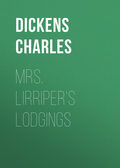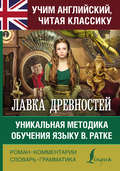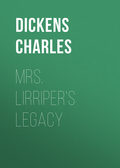
Чарльз Диккенс
Nicholas Nickleby
Pyke and Pluck promptly remarked that certainly nothing could be fairer than that; and the call having been by this time protracted to a very great length, they obeyed Sir Mulberry’s look, and rose to go. This brought Sir Mulberry himself and Lord Verisopht on their legs also. Many protestations of friendship, and expressions anticipative of the pleasure which must inevitably flow from so happy an acquaintance, were exchanged, and the visitors departed, with renewed assurances that at all times and seasons the mansion of the Wititterlys would be honoured by receiving them beneath its roof.
That they came at all times and seasons – that they dined there one day, supped the next, dined again on the next, and were constantly to and fro on all – that they made parties to visit public places, and met by accident at lounges – that upon all these occasions Miss Nickleby was exposed to the constant and unremitting persecution of Sir Mulberry Hawk, who now began to feel his character, even in the estimation of his two dependants, involved in the successful reduction of her pride – that she had no intervals of peace or rest, except at those hours when she could sit in her solitary room, and weep over the trials of the day – all these were consequences naturally flowing from the well-laid plans of Sir Mulberry, and their able execution by the auxiliaries, Pyke and Pluck.
And thus for a fortnight matters went on. That any but the weakest and silliest of people could have seen in one interview that Lord Verisopht, though he was a lord, and Sir Mulberry Hawk, though he was a baronet, were not persons accustomed to be the best possible companions, and were certainly not calculated by habits, manners, tastes, or conversation, to shine with any very great lustre in the society of ladies, need scarcely be remarked. But with Mrs. Wititterly the two titles were all sufficient; coarseness became humour, vulgarity softened itself down into the most charming eccentricity; insolence took the guise of an easy absence of reserve, attainable only by those who had had the good fortune to mix with high folks.
If the mistress put such a construction upon the behaviour of her new friends, what could the companion urge against them? If they accustomed themselves to very little restraint before the lady of the house, with how much more freedom could they address her paid dependent! Nor was even this the worst. As the odious Sir Mulberry Hawk attached himself to Kate with less and less of disguise, Mrs. Wititterly began to grow jealous of the superior attractions of Miss Nickleby. If this feeling had led to her banishment from the drawing-room when such company was there, Kate would have been only too happy and willing that it should have existed, but unfortunately for her she possessed that native grace and true gentility of manner, and those thousand nameless accomplishments which give to female society its greatest charm; if these be valuable anywhere, they were especially so where the lady of the house was a mere animated doll. The consequence was, that Kate had the double mortification of being an indispensable part of the circle when Sir Mulberry and his friends were there, and of being exposed, on that very account, to all Mrs. Wititterly’s ill-humours and caprices when they were gone. She became utterly and completely miserable.
Mrs. Wititterly had never thrown off the mask with regard to Sir Mulberry, but when she was more than usually out of temper, attributed the circumstance, as ladies sometimes do, to nervous indisposition. However, as the dreadful idea that Lord Verisopht also was somewhat taken with Kate, and that she, Mrs. Wititterly, was quite a secondary person, dawned upon that lady’s mind and gradually developed itself, she became possessed with a large quantity of highly proper and most virtuous indignation, and felt it her duty, as a married lady and a moral member of society, to mention the circumstance to ‘the young person’ without delay.
Accordingly Mrs. Wititterly broke ground next morning, during a pause in the novel-reading.
‘Miss Nickleby,’ said Mrs. Wititterly, ‘I wish to speak to you very gravely. I am sorry to have to do it, upon my word I am very sorry, but you leave me no alternative, Miss Nickleby.’ Here Mrs. Wititterly tossed her head – not passionately, only virtuously – and remarked, with some appearance of excitement, that she feared that palpitation of the heart was coming on again.
‘Your behaviour, Miss Nickleby,’ resumed the lady, ‘is very far from pleasing me – very far. I am very anxious indeed that you should do well, but you may depend upon it, Miss Nickleby, you will not, if you go on as you do.’
‘Ma’am!’ exclaimed Kate, proudly.
‘Don’t agitate me by speaking in that way, Miss Nickleby, don’t,’ said Mrs Wititterly, with some violence, ‘or you’ll compel me to ring the bell.’
Kate looked at her, but said nothing.
‘You needn’t suppose,’ resumed Mrs. Wititterly, ‘that your looking at me in that way, Miss Nickleby, will prevent my saying what I am going to say, which I feel to be a religious duty. You needn’t direct your glances towards me,’ said Mrs. Wititterly, with a sudden burst of spite; ‘I am not Sir Mulberry, no, nor Lord Frederick Verisopht, Miss Nickleby, nor am I Mr Pyke, nor Mr. Pluck either.’
Kate looked at her again, but less steadily than before; and resting her elbow on the table, covered her eyes with her hand.
‘If such things had been done when I was a young girl,’ said Mrs Wititterly (this, by the way, must have been some little time before), ‘I don’t suppose anybody would have believed it.’
‘I don’t think they would,’ murmured Kate. ‘I do not think anybody would believe, without actually knowing it, what I seem doomed to undergo!’
‘Don’t talk to me of being doomed to undergo, Miss Nickleby, if you please,’ said Mrs. Wititterly, with a shrillness of tone quite surprising in so great an invalid. ‘I will not be answered, Miss Nickleby. I am not accustomed to be answered, nor will I permit it for an instant. Do you hear?’ she added, waiting with some apparent inconsistency for an answer.
‘I do hear you, ma’am,’ replied Kate, ‘with surprise – with greater surprise than I can express.’
‘I have always considered you a particularly well-behaved young person for your station in life,’ said Mrs. Wititterly; ‘and as you are a person of healthy appearance, and neat in your dress and so forth, I have taken an interest in you, as I do still, considering that I owe a sort of duty to that respectable old female, your mother. For these reasons, Miss Nickleby, I must tell you once for all, and begging you to mind what I say, that I must insist upon your immediately altering your very forward behaviour to the gentlemen who visit at this house. It really is not becoming,’ said Mrs. Wititterly, closing her chaste eyes as she spoke; ‘it is improper – quite improper.’
‘Oh!’ cried Kate, looking upwards and clasping her hands; ‘is not this, is not this, too cruel, too hard to bear! Is it not enough that I should have suffered as I have, night and day; that I should almost have sunk in my own estimation from very shame of having been brought into contact with such people; but must I also be exposed to this unjust and most unfounded charge!’
‘You will have the goodness to recollect, Miss Nickleby,’ said Mrs Wititterly, ‘that when you use such terms as “unjust”, and “unfounded”, you charge me, in effect, with stating that which is untrue.’
‘I do,’ said Kate with honest indignation. ‘Whether you make this accusation of yourself, or at the prompting of others, is alike to me. I say it is vilely, grossly, wilfully untrue. Is it possible!’ cried Kate, ‘that anyone of my own sex can have sat by, and not have seen the misery these men have caused me? Is it possible that you, ma’am, can have been present, and failed to mark the insulting freedom that their every look bespoke? Is it possible that you can have avoided seeing, that these libertines, in their utter disrespect for you, and utter disregard of all gentlemanly behaviour, and almost of decency, have had but one object in introducing themselves here, and that the furtherance of their designs upon a friendless, helpless girl, who, without this humiliating confession, might have hoped to receive from one so much her senior something like womanly aid and sympathy? I do not – I cannot believe it!’
If poor Kate had possessed the slightest knowledge of the world, she certainly would not have ventured, even in the excitement into which she had been lashed, upon such an injudicious speech as this. Its effect was precisely what a more experienced observer would have foreseen. Mrs Wititterly received the attack upon her veracity with exemplary calmness, and listened with the most heroic fortitude to Kate’s account of her own sufferings. But allusion being made to her being held in disregard by the gentlemen, she evinced violent emotion, and this blow was no sooner followed up by the remark concerning her seniority, than she fell back upon the sofa, uttering dismal screams.
‘What is the matter?’ cried Mr. Wititterly, bouncing into the room. ‘Heavens, what do I see? Julia! Julia! look up, my life, look up!’
But Julia looked down most perseveringly, and screamed still louder; so Mr Wititterly rang the bell, and danced in a frenzied manner round the sofa on which Mrs. Wititterly lay; uttering perpetual cries for Sir Tumley Snuffim, and never once leaving off to ask for any explanation of the scene before him.
‘Run for Sir Tumley,’ cried Mr. Wititterly, menacing the page with both fists. ‘I knew it, Miss Nickleby,’ he said, looking round with an air of melancholy triumph, ‘that society has been too much for her. This is all soul, you know, every bit of it.’ With this assurance Mr. Wititterly took up the prostrate form of Mrs. Wititterly, and carried her bodily off to bed.
Kate waited until Sir Tumley Snuffim had paid his visit and looked in with a report, that, through the special interposition of a merciful Providence (thus spake Sir Tumley), Mrs. Wititterly had gone to sleep. She then hastily attired herself for walking, and leaving word that she should return within a couple of hours, hurried away towards her uncle’s house.
It had been a good day with Ralph Nickleby – quite a lucky day; and as he walked to and fro in his little back-room with his hands clasped behind him, adding up in his own mind all the sums that had been, or would be, netted from the business done since morning, his mouth was drawn into a hard stern smile; while the firmness of the lines and curves that made it up, as well as the cunning glance of his cold, bright eye, seemed to tell, that if any resolution or cunning would increase the profits, they would not fail to be excited for the purpose.
‘Very good!’ said Ralph, in allusion, no doubt, to some proceeding of the day. ‘He defies the usurer, does he? Well, we shall see. “Honesty is the best policy,” is it? We’ll try that too.’
He stopped, and then walked on again.
‘He is content,’ said Ralph, relaxing into a smile, ‘to set his known character and conduct against the power of money – dross, as he calls it. Why, what a dull blockhead this fellow must be! Dross to, dross! Who’s that?’
‘Me,’ said Newman Noggs, looking in. ‘Your niece.’
‘What of her?’ asked Ralph sharply.
‘She’s here.’
‘Here!’
Newman jerked his head towards his little room, to signify that she was waiting there.
‘What does she want?’ asked Ralph.
‘I don’t know,’ rejoined Newman. ‘Shall I ask?’ he added quickly.
‘No,’ replied Ralph. ‘Show her in! Stay.’ He hastily put away a padlocked cash-box that was on the table, and substituted in its stead an empty purse. ‘There,’ said Ralph. ‘Now she may come in.’
Newman, with a grim smile at this manoeuvre, beckoned the young lady to advance, and having placed a chair for her, retired; looking stealthily over his shoulder at Ralph as he limped slowly out.
‘Well,’ said Ralph, roughly enough; but still with something more of kindness in his manner than he would have exhibited towards anybody else. ‘Well, my – dear. What now?’
Kate raised her eyes, which were filled with tears; and with an effort to master her emotion strove to speak, but in vain. So drooping her head again, she remained silent. Her face was hidden from his view, but Ralph could see that she was weeping.
‘I can guess the cause of this!’ thought Ralph, after looking at her for some time in silence. ‘I can – I can – guess the cause. Well! Well!’ thought Ralph – for the moment quite disconcerted, as he watched the anguish of his beautiful niece. ‘Where is the harm? only a few tears; and it’s an excellent lesson for her, an excellent lesson.’
‘What is the matter?’ asked Ralph, drawing a chair opposite, and sitting down.
He was rather taken aback by the sudden firmness with which Kate looked up and answered him.
‘The matter which brings me to you, sir,’ she said, ‘is one which should call the blood up into your cheeks, and make you burn to hear, as it does me to tell. I have been wronged; my feelings have been outraged, insulted, wounded past all healing, and by your friends.’
‘Friends!’ cried Ralph, sternly. ‘I have no friends, girl.’
‘By the men I saw here, then,’ returned Kate, quickly. ‘If they were no friends of yours, and you knew what they were, – oh, the more shame on you, uncle, for bringing me among them. To have subjected me to what I was exposed to here, through any misplaced confidence or imperfect knowledge of your guests, would have required some strong excuse; but if you did it – as I now believe you did – knowing them well, it was most dastardly and cruel.’
Ralph drew back in utter amazement at this plain speaking, and regarded Kate with the sternest look. But she met his gaze proudly and firmly, and although her face was very pale, it looked more noble and handsome, lighted up as it was, than it had ever appeared before.
‘There is some of that boy’s blood in you, I see,’ said Ralph, speaking in his harshest tones, as something in the flashing eye reminded him of Nicholas at their last meeting.
‘I hope there is!’ replied Kate. ‘I should be proud to know it. I am young, uncle, and all the difficulties and miseries of my situation have kept it down, but I have been roused today beyond all endurance, and come what may, I will not, as I am your brother’s child, bear these insults longer.’
‘What insults, girl?’ demanded Ralph, sharply.
‘Remember what took place here, and ask yourself,’ replied Kate, colouring deeply. ‘Uncle, you must – I am sure you will – release me from such vile and degrading companionship as I am exposed to now. I do not mean,’ said Kate, hurrying to the old man, and laying her arm upon his shoulder; ‘I do not mean to be angry and violent – I beg your pardon if I have seemed so, dear uncle, – but you do not know what I have suffered, you do not indeed. You cannot tell what the heart of a young girl is – I have no right to expect you should; but when I tell you that I am wretched, and that my heart is breaking, I am sure you will help me. I am sure, I am sure you will!’
Ralph looked at her for an instant; then turned away his head, and beat his foot nervously upon the ground.
‘I have gone on day after day,’ said Kate, bending over him, and timidly placing her little hand in his, ‘in the hope that this persecution would cease; I have gone on day after day, compelled to assume the appearance of cheerfulness, when I was most unhappy. I have had no counsellor, no adviser, no one to protect me. Mama supposes that these are honourable men, rich and distinguished, and how can I – how can I undeceive her – when she is so happy in these little delusions, which are the only happiness she has? The lady with whom you placed me, is not the person to whom I could confide matters of so much delicacy, and I have come at last to you, the only friend I have at hand – almost the only friend I have at all – to entreat and implore you to assist me.’
‘How can I assist you, child?’ said Ralph, rising from his chair, and pacing up and down the room in his old attitude.
‘You have influence with one of these men, I know,’ rejoined Kate, emphatically. ‘Would not a word from you induce them to desist from this unmanly course?’
‘No,’ said Ralph, suddenly turning; ‘at least – that – I can’t say it, if it would.’
‘Can’t say it!’
‘No,’ said Ralph, coming to a dead stop, and clasping his hands more tightly behind him. ‘I can’t say it.’
Kate fell back a step or two, and looked at him, as if in doubt whether she had heard aright.
‘We are connected in business,’ said Ralph, poising himself alternately on his toes and heels, and looking coolly in his niece’s face, ‘in business, and I can’t afford to offend them. What is it after all? We have all our trials, and this is one of yours. Some girls would be proud to have such gallants at their feet.’
‘Proud!’ cried Kate.
‘I don’t say,’ rejoined Ralph, raising his forefinger, ‘but that you do right to despise them; no, you show your good sense in that, as indeed I knew from the first you would. Well. In all other respects you are comfortably bestowed. It’s not much to bear. If this young lord does dog your footsteps, and whisper his drivelling inanities in your ears, what of it? It’s a dishonourable passion. So be it; it won’t last long. Some other novelty will spring up one day, and you will be released. In the mean time – ’
‘In the mean time,’ interrupted Kate, with becoming pride and indignation, ‘I am to be the scorn of my own sex, and the toy of the other; justly condemned by all women of right feeling, and despised by all honest and honourable men; sunken in my own esteem, and degraded in every eye that looks upon me. No, not if I work my fingers to the bone, not if I am driven to the roughest and hardest labour. Do not mistake me. I will not disgrace your recommendation. I will remain in the house in which it placed me, until I am entitled to leave it by the terms of my engagement; though, mind, I see these men no more. When I quit it, I will hide myself from them and you, and, striving to support my mother by hard service, I will live, at least, in peace, and trust in God to help me.’
With these words, she waved her hand, and quitted the room, leaving Ralph Nickleby motionless as a statue.
The surprise with which Kate, as she closed the room-door, beheld, close beside it, Newman Noggs standing bolt upright in a little niche in the wall like some scarecrow or Guy Faux laid up in winter quarters, almost occasioned her to call aloud. But, Newman laying his finger upon his lips, she had the presence of mind to refrain.
‘Don’t,’ said Newman, gliding out of his recess, and accompanying her across the hall. ‘Don’t cry, don’t cry.’ Two very large tears, by-the-bye, were running down Newman’s face as he spoke.
‘I see how it is,’ said poor Noggs, drawing from his pocket what seemed to be a very old duster, and wiping Kate’s eyes with it, as gently as if she were an infant. ‘You’re giving way now. Yes, yes, very good; that’s right, I like that. It was right not to give way before him. Yes, yes! Ha, ha, ha! Oh, yes. Poor thing!’
With these disjointed exclamations, Newman wiped his own eyes with the afore-mentioned duster, and, limping to the street-door, opened it to let her out.
‘Don’t cry any more,’ whispered Newman. ‘I shall see you soon. Ha! ha! ha! And so shall somebody else too. Yes, yes. Ho! ho!’
‘God bless you,’ answered Kate, hurrying out, ‘God bless you.’
‘Same to you,’ rejoined Newman, opening the door again a little way to say so. ‘Ha, ha, ha! Ho! ho! ho!’
And Newman Noggs opened the door once again to nod cheerfully, and laugh – and shut it, to shake his head mournfully, and cry.
Ralph remained in the same attitude till he heard the noise of the closing door, when he shrugged his shoulders, and after a few turns about the room – hasty at first, but gradually becoming slower, as he relapsed into himself – sat down before his desk.
It is one of those problems of human nature, which may be noted down, but not solved; – although Ralph felt no remorse at that moment for his conduct towards the innocent, true-hearted girl; although his libertine clients had done precisely what he had expected, precisely what he most wished, and precisely what would tend most to his advantage, still he hated them for doing it, from the very bottom of his soul.
‘Ugh!’ said Ralph, scowling round, and shaking his clenched hand as the faces of the two profligates rose up before his mind; ‘you shall pay for this. Oh! you shall pay for this!’
As the usurer turned for consolation to his books and papers, a performance was going on outside his office door, which would have occasioned him no small surprise, if he could by any means have become acquainted with it.
Newman Noggs was the sole actor. He stood at a little distance from the door, with his face towards it; and with the sleeves of his coat turned back at the wrists, was occupied in bestowing the most vigorous, scientific, and straightforward blows upon the empty air.
At first sight, this would have appeared merely a wise precaution in a man of sedentary habits, with the view of opening the chest and strengthening the muscles of the arms. But the intense eagerness and joy depicted in the face of Newman Noggs, which was suffused with perspiration; the surprising energy with which he directed a constant succession of blows towards a particular panel about five feet eight from the ground, and still worked away in the most untiring and persevering manner, would have sufficiently explained to the attentive observer, that his imagination was thrashing, to within an inch of his life, his body’s most active employer, Mr. Ralph Nickleby.







